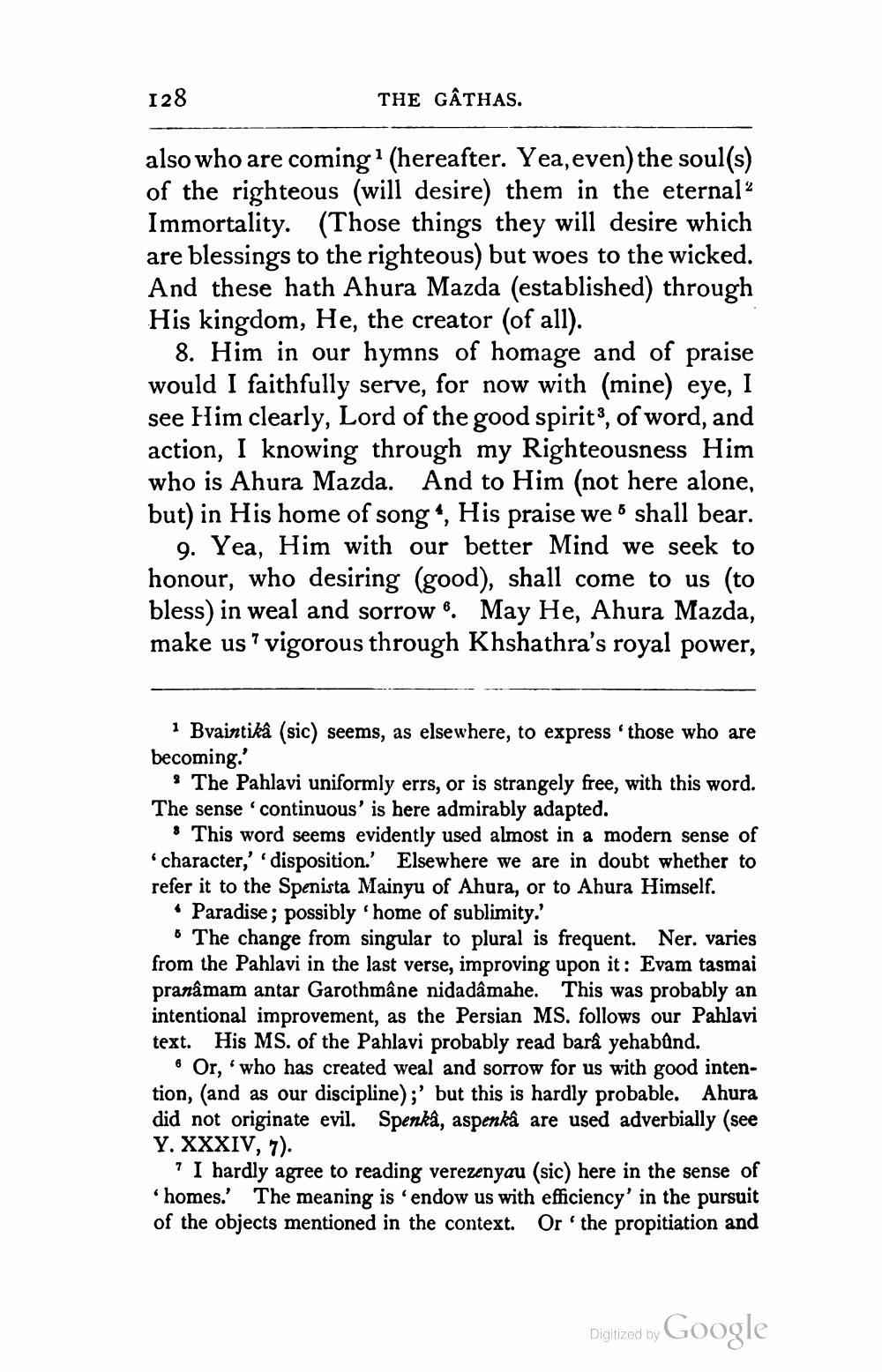________________
128
THE GÂTHAS.
also who are coming ? (hereafter. Yea, even) the soul(s) of the righteous (will desire) them in the eternal2 Immortality. (Those things they will desire which are blessings to the righteous) but woes to the wicked. And these hath Ahura Mazda (established) through His kingdom, He, the creator (of all).
8. Him in our hymns of homage and of praise would I faithfully serve, for now with (mine) eye, I see Him clearly, Lord of the good spirit", of word, and action, I knowing through my Righteousness Him who is Ahura Mazda. And to Him (not here alone, but) in His home of song , His praise we shall bear.
9. Yea, Him with our better Mind we seek to honour, who desiring (good), shall come to us (to bless) in weal and sorrow 6. May He, Ahura Mazda, make us? vigorous through Khshathra's royal power,
1 Bvaintikå (sic) seems, as elsewhere, to express those who are becoming.'
9 The Pahlavi uniformly errs, or is strangely free, with this word. The sense continuous' is here admirably adapted.
This word seems evidently used almost in a modern sense of character,' disposition.' Elsewhere we are in doubt whether to refer it to the Spenista Mainyu of Ahura, or to Ahura Himself.
• Paradise; possibly 'home of sublimity.
• The change from singular to plural is frequent. Ner. varies from the Pahlavi in the last verse, improving upon it: Evam tasmai pranamam antar Garothmâne nidadâmahe. This was probably an intentional improvement, as the Persian MS. follows our Pahlavi text. His MS. of the Pahlavi probably read bara yehabûnd.
Or, who has created weal and sorrow for us with good intention, (and as our discipline);' but this is hardly probable. Ahura did not originate evil. Spenkâ, aspenkâ are used adverbially (see Y. XXXIV, 7).
? I hardly agree to reading verezenyau (sic) here in the sense of homes. The meaning is endow us with efficiency' in the pursuit of the objects mentioned in the context. Or the propitiation and
Digitized by
Digitized by Google




